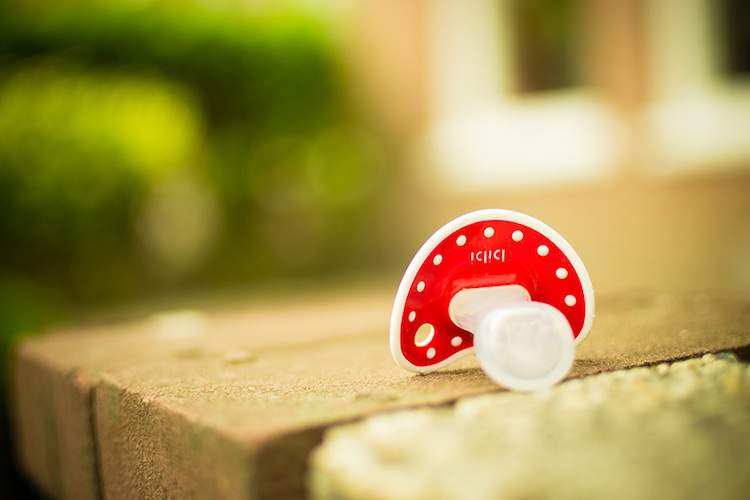
Imagine the following scenario: Your baby drops her pacifier on the floor and then starts to scream because she can't live without it. To restore quiet as quickly as possible, you pop the pacifier into your own mouth, suck it clean, and hand it back to the baby.
What About The Germs?
Although it's not clear what the results mean exactly, researchers in Sweden have observed that children whose parents sucked on their pacifiers to clean them had fewer allergies, less asthma and lower rates of eczema than children whose parents didn't.
One possible reason is that microbes from parents' mouths actually help boost children's immune systems. If further research shows this to be the case, it will bolster the so-called "hygiene hypothesis," which basically states that our modern obsession with cleanliness is behind today's increased incidence of allergies.
The Jury's Still Out
In spite of a fair amount of evidence in support of the hygiene hypothesis, scientists still aren't sure it holds water. A lot of additional scientific work will need to be done in order to know conclusively one way or the other.
This means that before you get into the habit of mingling saliva with your baby, you should probably do some more research on your own and have a long talk with your child's pediatrician.
Read More:
- The Hygiene Hypothesis: Are Cleanlier Lifestyles Causing More Allergies For Kids? (Science Daily)
- Sucking Your Child's Pacifier Clean May Have Benefits (Huffington Post)
- ADA Says Saliva Harbors Cavity-Causing Bacteria That Can Be Transmitted To Babies (Reuters)
Â









